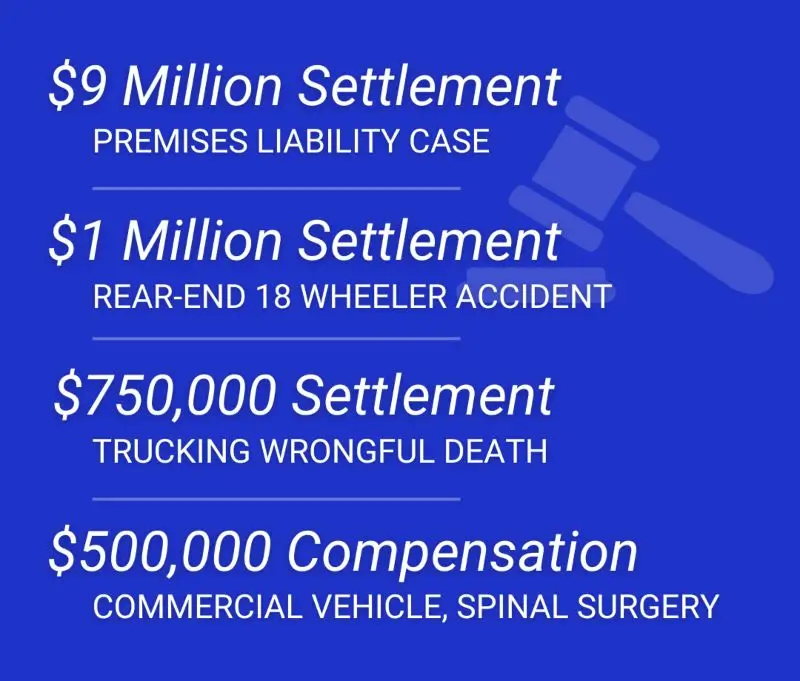As an employee in the Lone Star State, understanding your rights is crucial, especially if you get injured on the job. At Nava Law Group, we help injured employees in Texas file for and receive workers’ compensation. Getting hurt on the job can be a life-altering experience. On top of the physical pain, emotional distress, and medical bills, you must grapple with the uncertainty of whether you’ll be able to continue earning a living and supporting your family. Workers’ compensation laws in Texas are designed to protect workers and ensure they receive appropriate compensation and treatment. This guide will help you understand these rights and how to navigate the Texas workers’ compensation system.
Understanding Your Rights
In Texas, injured employees have specific rights designed to protect them throughout the recovery and claims process. Understanding your rights can help you get the support and benefits you deserve. These rights include:
- Right to emergency medical care – If your injury is severe, you can seek immediate medical treatment, even before reporting the injury. This is crucial for your health and pertinent to any claim you file.
- Right to file a worker’s compensation claim – Most employers in Texas provide workers’ compensation insurance, offering coverage – regardless of fault – for injuries sustained on the job. This ensures you can seek benefits for your injuries to cover medical expenses and lost wages.
- Right to legal representation – Navigating a complex workers’ compensation claim can be challenging. You have the right to hire an attorney to represent your interests, ensuring fair treatment from your employer and the insurance company.

How to Report Your Injury
If you’ve been injured at work, it’s essential to report the injury to your employer as soon as possible to ensure your rights are protected and to begin the process of receiving any necessary compensation or medical care. In Texas, you’re required to notify your employer within 30 days of the injury date. Failing to do so could jeopardize your ability to file a workers’ compensation claim. For injuries that develop over time, such as carpal tunnel syndrome, the 30-day reporting period begins from the moment you first realize or were diagnosed with the work-related injury. Prompt communication not only ensures compliance with the law but also helps establish a clear record of the injury and its connection to your workplace.
What Forms Do I Need to Fill Out for Workers’ Compensation?
You may need to complete several forms when filing a workers’ compensation claim in Texas, depending on the specifics of your case. Completing these forms accurately and on time ensures your claim is processed correctly and any issues are addressed efficiently. These forms include:
- DWC Form-041 – This form is used to dispute a decision made by the insurance carrier, such as denied benefits or disagreements about coverage.
- DWC Form-042 – A DWC Form-042 is required to request a benefit review conference, which is a meeting designed to help resolve disputes between employees and insurers.
What Benefits Can I Receive From Workers’ Compensation?
In Texas, workers’ compensation benefits are designed to provide financial and medical support to employees who are injured or become ill due to their jobs. These benefits can include:
- Medical Benefits – This includes all necessary and reasonable medical treatment required to address your work-related injury or illness, such as doctor visits, physical therapy, medications, surgeries, or other healthcare services needed to support your recovery and well-being.
- Income Benefits – If you cannot work due to a work-related injury, you may be entitled to receive income benefits to help support you during your recovery. These benefits are typically calculated based on your average weekly wage before the injury and are designed to provide financial relief while you’re unable to perform your job duties.
- Death Benefits – If an employee dies due to a work-related injury or illness, their spouse and dependent children may be eligible to receive death benefits. Typically, these benefits are calculated based on the employee’s average weekly wage and are intended to provide financial support to the family during a difficult time. The exact amount and duration of the benefits depend on the circumstances of the employee’s death.
- Burial Benefits – If a family member dies from a work-related injury or illness, the surviving dependents may be entitled to receive financial assistance to cover burial expenses. This support can provide up to $10,000 to help alleviate the financial burden during a difficult time, ensuring the family can focus on grieving and healing.
Workers’ Compensation Participants vs. Non-Subscribers
Unlike all other states, Texas gives employers the unique option to opt out of the state’s workers’ compensation system, designating them as “non-subscribers.” This means employers can choose alternative ways to manage workplace injury claims and employee benefits, but it also comes with specific legal and financial responsibilities. Here are your options:
If your injury involves both an employer’s workers’ compensation coverage and a third party’s negligence, you can file dual claims. This approach allows you to benefit from the immediate support of workers’ compensation coverage while also pursuing broader damages through a liability claim against responsible third parties.
If your employer subscribes to workers’ compensation, you’re entitled to file for benefits covering medical costs and lost wages without needing to prove fault. However, this option limits your ability to sue for personal injuries and receive compensation for pain and suffering.
If your employer is a non-subscriber, you must pursue a personal injury or negligence claim for compensation, and if a third party played a role in your injury, you can also pursue a claim against them. This route potentially offers greater rewards but requires proving your employer’s fault and may involve a longer settlement process.
Filing Workers’ Compensation and a Liability Claim
If you’re injured at work, your options for seeking compensation depend on who is responsible for the accident. While you typically can’t sue your direct employer if they provide workers’ compensation coverage, you can file a claim against a third party if their negligence caused your injury. This means you can receive workers’ compensation benefits while also pursuing additional compensation through a third-party liability claim.
Third-party liability claims are especially common in places like construction sites or oil fields, but they can happen in many other work environments. For example, you could have a claim against a general contractor, subcontractor, equipment manufacturer, or property owner. If you’re considering this type of claim, here’s what you need to know about filing both workers’ compensation and liability claims:
What Is a Dual Claim?
When an injured worker seeks compensation through both workers’ compensation and a liability claim, it’s called a dual claim. Through this approach, you can tap into multiple sources of compensation and potentially access a larger pool of insurance coverage. With more resources available, your chances of securing the full compensation you deserve significantly increase.
Why Dual Claims Are Beneficial.
Workers’ compensation covers medical bills and lost wages without requiring you to prove fault. But it does have limits. On the other hand, a liability claim can provide compensation for non-economic damages as well as financial losses not covered by workers’ compensation, such as additional missed wages. Combining these claims may give you a more complete recovery by addressing both your physical and emotional hardships.
The Challenges of Dual Claims.
Filing dual claims isn’t always straightforward. These claims involve navigating different legal processes and coordinating between insurance providers, which can get complicated. For instance, you can’t receive duplicate compensation for lost wages, and a settlement in one claim might affect the other. To ensure everything is handled correctly, it’s vital to partner with an experienced attorney who can help you avoid potential pitfalls and guide you through the process.

Does Workers’ Compensation Cover Coronavirus?
Yes, in Texas, if you can prove that you contracted the virus through your work, you may be eligible for workers’ compensation benefits. However, proving that you contracted the virus specifically through your job can be challenging since it requires demonstrating a clear connection between your workplace and the exposure. This often involves gathering evidence such as workplace conditions, the timing of your illness, and other supporting documentation. Given the complexity of these cases, it’s highly advisable to consult an experienced workers’ compensation attorney to evaluate your situation and guide you through the process.
What To Do if Your Insurance Carrier Is Denying Your Claim
If your workers’ compensation claim is denied, you can challenge the decision through a formal appeals process. The first step is to request a Benefit Review Conference (BRC), which is an informal meeting aimed at resolving disputes between you and the insurance company. If the issue isn’t resolved at the BRC, you can proceed to a Contested Case Hearing (CCH), where a hearing officer will review evidence and make a decision. You can also escalate the matter to the Appeals Panel for further review if you’re still unsatisfied with the outcome. Throughout this process, it’s crucial to consult with an experienced workers’ compensation attorney. They can provide guidance, prepare your case, and represent your best interests to ensure you receive the benefits you deserve.
Damages Recoverable in Personal Injury Claims
Personal injury cases offer a much broader scope of compensation compared to workers’ compensation claims. With a personal injury case, you can seek full reimbursement for all your economic losses. This includes medical bills, lost wages, and even vocational rehabilitation costs. Unlike workers’ compensation, which typically covers only 70% of your wages, a personal injury claim allows you to recover 100% — including future wage increases and lost earning potential.
But that’s not all. Personal injury claims also cover non-economic damages, such as pain and suffering, emotional distress, and loss of enjoyment of life. This can be a game-changer for claimants. In cases involving severe injuries, the compensation for pain and suffering often far exceeds the economic damages alone. If you’re facing serious injuries, a personal injury claim can provide the comprehensive compensation you deserve, helping you regain control of your life.
How An Attorney Can Help With Your Workers’ Compensation Claim
An experienced attorney can guide you through the workers’ compensation process, helping you understand your injured employee rights in Texas and ensuring you don’t miss any critical details. They can assist in gathering the necessary evidence to build a strong case, such as medical records, witness statements, or employment documentation. Additionally, an experienced attorney can handle negotiations with the insurance company and secure a settlement that reflects the full extent of your needs. If your case requires further action, they can represent you during hearings or appeals, advocating for your best interests every step of the way. With our expertise at Nava Law Group, you can have confidence that you’ll receive all the benefits and compensation you’re entitled to under the law.
Contact Us for Help Navigating Workers’ Compensation in Texas
Being an injured employee in Texas can be physically and emotionally challenging. Navigating workers’ compensation can feel overwhelming, especially if you’re unsure of your rights or facing pushback on your claim. However, understanding the necessary steps of the process can make the journey less daunting and help ensure you get the support you need during this difficult time.
If you’re dealing with denied claims, delays in receiving benefits, or pressure to return to work before you’re ready, seeking legal help can make a significant difference. A skilled workers’ compensation attorney can advocate for your rights and help you gather the necessary documentation to strengthen your case.
At Nava Law Group, we serve clients throughout Texas, including Houston, Bellaire, Edinburg, Austin, McAllen, Corpus Christi, and San Antonio, TX. Our team will work hard to ensure you receive the compensation you need to recover and move forward. Contact us today for a free consultation, and let’s help you navigate the complex world of workers’ compensation.








